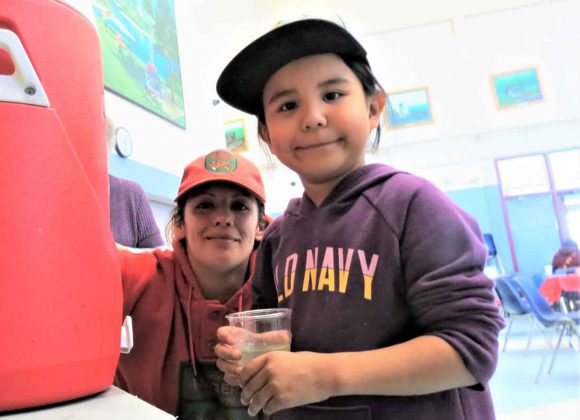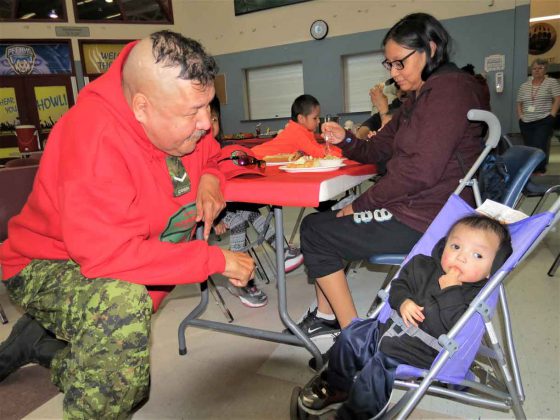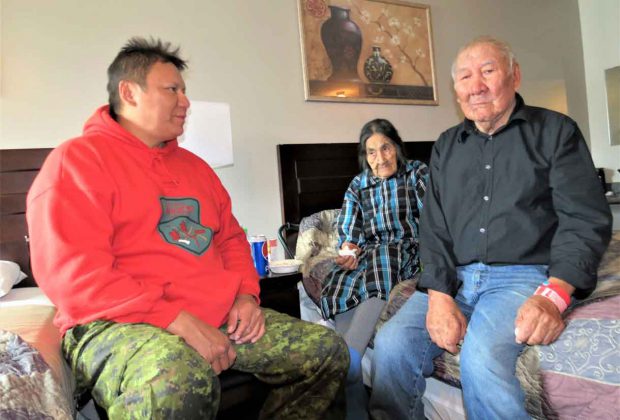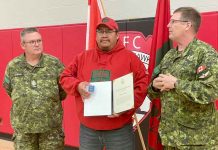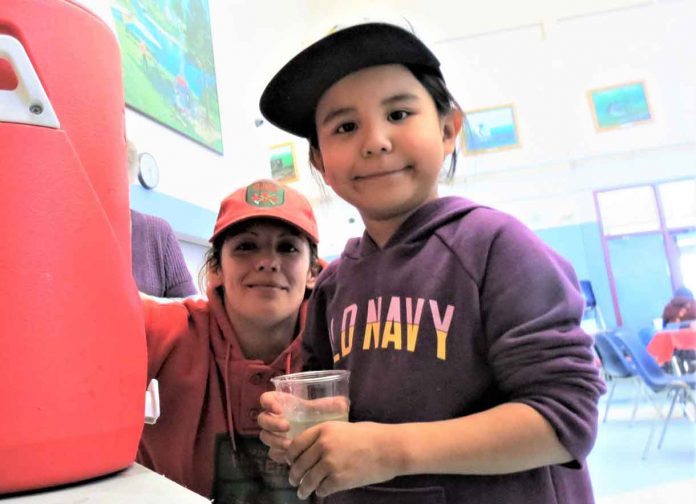
THUNDER BAY – Small teams of Canadian Rangers are providing a range of cultural supports for many of the hundreds of people evacuated from Pikangikum First Nation after a forest fired threatened the remote Ojibway community.
The evacuees were flown out of the community to six cities and towns in Northern Ontario and to Winnipeg, where they are being housed and fed in hotels and motels until they can return to their homes. Many can only speak their native Ojibwa.
The Ranger teams are operating in all six Ontario centres and each has at least one Ranger who can communicate with the evacuees in Ojibwa, their native language. The Rangers are acting as interpreters, reassuring the evacuees, and liaising with local authorities.
The Rangers are part time army reservists. The Rangers in the liaison teams come from six First Nations and they are assisting authorities in Thunder Bay, Timmins, Kapuskasing, Sioux Lookout, Cochrane and Smooth Rock Falls.
“It makes them feel at home when they hear someone speak their language,” said Ranger Bennett Quill of the Lac Seul Canadian Ranger Patrol. He is a former resident of Pikangikum and speaks fluent Ojibwa. He is helping evacuees at Pelican Falls First Nations School and in the nearby town of Sioux Lookout. The residential school is housing some of the people who fled Pikangikum by boat. “I think a lot of people are worried about their homes back home,” he said. “They’re displaced right now and their families are all over the place.
“It’s a good thing there’s Facebook. A lot of people see messages from family members and stuff like that and they can connect with them and that helps them.”
About 1,700 people were flown out of Pikangikum by military and civilian aircraft and an unknown number fled by boat.
The Rangers played a crucial role in the evacuations, which began after Pikangikum declared an emergency on May 30 when the out of control fire reached to about two kilometers from the community, The evacuations ended on Tuesday. The fire continues to burn but about half of Pikangikum’s population decided not to evacuate. There about 3,800 band members living in the community along with about 500 temporary residents, such as teachers, health workers and police.
“There were 13 Rangers when we started evacuating and the situation was chaotic,” said Chief Amanda Sainnawap. “They helped just by being there in their red (Ranger) sweaters. It gave me peace of mind that they were trained. I don’t know what we would have done without them.”
She also credited the help provided by Warrant Officers Ben Kirke and Dan Stortz, two Canadian Army instructors, who flew into Pikangikum on the day of the first evacuation. “They were a huge help,” she said. “I don’t know what we would have done without the Rangers and the army.”
The Rangers and the instructors set up an orderly system of prioritizing who should be flown out first for health and other reasons and organized departures from the airport. The Rangers are still on duty in Pikangikum conducting wellness checks on those who did not evacuate. The forest fire is still not under control.
“The evacuation of Pikangikum illustrates the depth of the tasks the Canadian Rangers can do for their communities,” said Lieutenant-Colonel Matthew Richardson, who commands the Rangers of Northern Ontario. “I’m always pleased with the way they perform. What they can do and the way they come with ideas to support their communities shows that they are an essential community organization. When needed they have the full resources of the Canadian Armed Forces behind them.”



